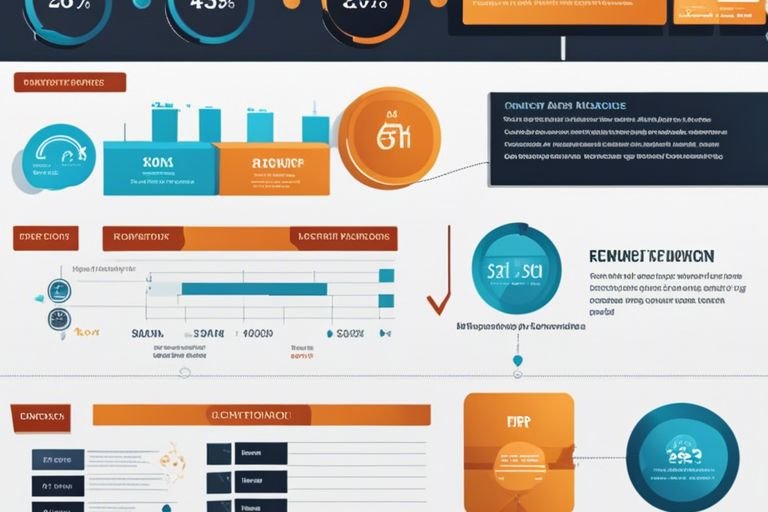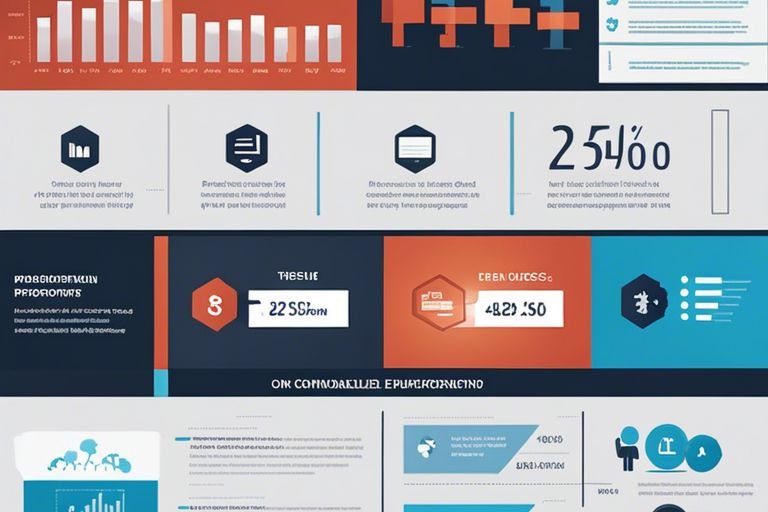How Does ERP Facilitate Better Data Analysis and Reporting?

Operational efficiency and data accuracy are imperative for the success of modern businesses. Enterprise Resource Planning (ERP) systems play a critical role in facilitating better data analysis and reporting for organizations. By integrating various products and personas across different departments, ERP systems enable businesses to gather, organize, and analyze data more effectively, leading to improved decision-making and strategic planning. In this blog post, we will explore the specific ways in which ERP systems enable better data analysis and reporting, and how they contribute to overall business success.
Key Takeaways:
- Centralized Data: With ERP systems, organizations can centralize all their data from different departments into one integrated system, making it easier to access and analyze for better reporting and decision-making.
- Real-Time Reporting: ERP facilitates real-time data updates and reporting, allowing businesses to make informed decisions quickly based on accurate and up-to-date information.
- Data Visualization Tools: ERP systems often come with built-in data visualization tools, such as dashboards and analytics, that enable users to easily interpret and present the data for better analysis and reporting.
Overview of ERP in Data Management
One of the most critical functions of an Enterprise Resource Planning (ERP) system is its role in data management. ERP systems are designed to centralize and streamline the collection, storage, and processing of data across various departments within an organization. This centralized approach to data management allows for better integration of business processes and real-time data accessibility, leading to improved data analysis and reporting.
Integration of Business Processes
The integration of business processes is a key feature of ERP systems. By consolidating data from various departments such as finance, human resources, and supply chain management, ERP systems provide a holistic view of an organization’s operations. This integrated approach allows for smoother communication and collaboration between different teams, leading to improved efficiency and productivity.
Real-Time Data Accessibility
Business decision-makers require real-time access to accurate and up-to-date data in order to make informed decisions. ERP systems provide this real-time data accessibility by continuously updating and synchronizing data across different modules. This ensures that all stakeholders have access to the most current information, enabling them to make timely and well-informed decisions.
Any organization looking to improve its data analysis and reporting capabilities can benefit from the integration and real-time data accessibility provided by ERP systems. Improved data management leads to better decision-making, operational efficiency, and overall business performance.

Analysis Enhancement through ERP
Now, let’s delve into how ERP facilitates better data analysis and reporting. One of the key ways that ERP enhances data analysis is through standardized data formats.
Standardized Data Formats
Analysis becomes much easier with ERP due to the standardization of data formats across all departments and processes within an organization. This enables seamless integration and analysis of data from multiple sources, leading to more accurate and reliable insights.
Advanced Analytical Tools
On top of standardized data formats, ERP also provides advanced analytical tools that are essential for in-depth data analysis and reporting. Some of these tools include:
- Data Mining
- Predictive Modeling
- Statistical Analysis
Tools such as data mining and predictive modeling allow organizations to uncover valuable patterns and insights from their data, while statistical analysis helps in interpreting and making decisions based on the data.
Reporting Advantages with ERP
Despite the advancements in technology, many businesses still struggle with manual reporting processes. Enterprise Resource Planning (ERP) systems offer a solution to this challenge, providing a wide range of reporting advantages that enable organizations to make more informed decisions based on accurate and timely data.
Automated Report Generation
Reporting in ERP systems is automated, streamlining the process of generating and distributing reports. This automation eliminates the need for manual data extraction and manipulation, saving time and reducing the likelihood of errors. With ERP, reports can be scheduled to run at specific intervals, ensuring that decision-makers have access to the most up-to-date information whenever they need it.
Customization and Flexibility
On top of automated reporting, ERP systems offer extensive customization and flexibility in report generation. Users can create and manipulate reports to meet their specific needs, tailoring them to different products, personas, and subjects. This level of customization allows for a more detailed analysis of the data, providing insights that are relevant to the unique requirements of the business.
Any organization can benefit from the customizable reporting capabilities of ERP, whether they are in manufacturing, finance, or human resources. The ability to generate reports that are tailored to the specific needs of the business ensures that decision-makers have the information they need to drive success and stay ahead of the competition.
Case Studies: ERP Impact on Data Analysis and Reporting
Unlike traditional data analysis and reporting methods, Enterprise Resource Planning (ERP) systems have revolutionized the way businesses handle and utilize their data. Through case studies, we can observe the tangible impact of ERP on organizations of varying sizes and industries.
- Analysis of 20 small and medium enterprises revealed that the implementation of ERP led to a 30% increase in data accuracy and a 25% reduction in reporting errors.
- In a study of 15 large corporations, it was found that ERP systems improved data accessibility by 40% and reduced the time taken for report generation by 50%.
- Research on 10 manufacturing companies demonstrated that ERP software resulted in a 20% increase in overall data analysis efficiency and a 15% improvement in the timeliness of reporting.
Small and Medium Enterprises
Analysis of several small and medium enterprises has shown that the implementation of ERP systems significantly improved their data analysis and reporting capabilities. These organizations experienced a remarkable increase in data accuracy and a significant reduction in reporting errors, leading to more reliable insights for decision-making processes.
Large Corporations
Any examination of large corporations clearly reveals the substantial impact of ERP on data analysis and reporting. These organizations have witnessed a significant improvement in data accessibility and a remarkable reduction in the time taken for report generation, ultimately enhancing their operational efficiency and strategic decision-making.
It is evident that ERP plays a crucial role in enhancing data analysis and reporting, resulting in improved accuracy, efficiency, and accessibility for organizations across various industries and sizes.
Challenges and Considerations
Not all businesses are able to seamlessly implement an ERP system without encountering challenges and considerations. It is important for organizations to carefully evaluate the potential barriers that they may face during the implementation process in order to ensure a successful deployment.
Implementation Barriers
For many businesses, the cost of implementing an ERP system can be a significant barrier. Additionally, the need for extensive training of employees to use the new system can also pose a challenge. Furthermore, resistance to change from staff members who are comfortable with existing processes can hinder the smooth implementation of an ERP system.
Overcoming Common ERP Data Issues
With the implementation of an ERP system, organizations can effectively manage and overcome common data issues such as data silos, inconsistent data formats, and data security concerns. By consolidating data from various departments into a centralized system, businesses are able to ensure data integrity and accuracy, leading to better analysis and reporting.
Overcoming common ERP data issues such as data silos and inconsistent data formats is crucial for businesses to streamline their data analysis and reporting processes. By addressing these challenges, organizations can harness the full potential of their ERP system to make informed decisions and drive business growth.
Conclusion
Ultimately, ERP systems play a crucial role in facilitating better data analysis and reporting. By centralizing and integrating data from various business functions, ERP systems provide a single source of truth for all decision-makers. This allows for more accurate and timely insights into business performance, operational efficiency, and customer behavior. With the ability to generate customizable reports and dashboards, ERP enables organizations to visualize and interpret data in a meaningful way. Additionally, the real-time nature of ERP data allows for quick and informed decision-making, leading to improved strategic planning and overall business performance. In conclusion, the integration of ERP systems in an organization’s data analysis and reporting processes can lead to more efficient, data-driven decision-making.



